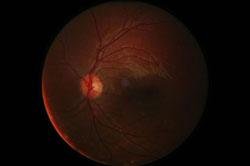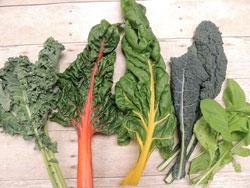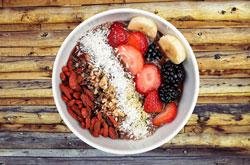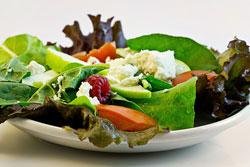Heart attacks are a major bummer, happening way too often around the world. But the good news is, if you catch the early warning signs of a heart attack, you can prevent a lot of damage to your heart.
Hypertension
Heart disease, also known as atherosclerosis, can be scary. It's a serious condition that develops when plaque, a buildup of fatty deposits, cholesterol, and other substances, hardens and narrows your arteries.
Congestive heart failure (CHF) can be scary, but it doesn't have to stop you from enjoying life. It simply means your heart isn't pumping blood as efficiently as it used to. The good news?
Coronary artery disease (CAD), also known as coronary heart disease (CHD), is the leading cause of death globally. But the good news is, it's largely preventable! If you're looking to safeguard your heart health and reduce your risk of CHD, you've come to the right place.
Let's talk about stroke, a serious condition and the leading cause of disability worldwide.
Have you been diagnosed with high blood pressure that seems resistant to treatment? It's possible you might have renal hypertension, also known as renovascular hypertension. This type of high blood pressure arises specifically due to problems with the kidneys. Let's delve deeper into renal hypertension, exploring its causes, symptoms, and treatment options.
Understanding Renal Hypertension
Unlike most cases of high blood pressure (essential hypertension), renal hypertension isn't caused by lifestyle factors alone. Here, the culprit lies within the kidneys, those bean-shaped organs responsible for filtering waste products from your blood.
In renal hypertension, a narrowing of the arteries supplying blood to the kidneys (renal artery stenosis) disrupts this delicate balance. This reduced blood flow can impair the kidneys' ability to function properly, leading to the release of hormones that ultimately increase blood pressure (1).
How Does Renal Hypertension Affect Blood Pressure?
Healthy kidneys play a crucial role in regulating blood pressure by maintaining a healthy balance of fluids and electrolytes in the body. When renal artery stenosis reduces blood flow to the kidneys, they struggle to function effectively (2).
This can trigger the release of renin, a hormone that prompts the body to produce angiotensin II, a substance that constricts blood vessels, leading to a rise in blood pressure.
Can Renal Hypertension Be Cured?
Renal hypertension itself isn't technically "cured," but it can be effectively managed to lower blood pressure and protect your kidney function. The treatment approach depends on the severity of the underlying cause.
In some cases, minimally invasive procedures like renal artery angioplasty or renal artery stenting can open up narrowed arteries, potentially improving blood pressure control.
Medications like angiotensin-converting enzyme (ACE) inhibitors or angiotensin II receptor blockers (ARBs) are also commonly used to manage blood pressure in renal hypertension. Additionally, maintaining a healthy lifestyle through diet, exercise, and weight management can significantly contribute to controlling blood pressure.
Treatment Options for Renal Hypertension
The goal of treatment for renal hypertension is to lower blood pressure and protect your kidney function. Treatment options may include:
- Medications:Blood pressure medications like angiotensin-converting enzyme (ACE) inhibitors or angiotensin II receptor blockers (ARBs) are often used.
- Minimally invasive procedures:In some cases, procedures like renal artery angioplastyor renal artery stenting might be performed to open up narrowed arteries.
- Surgery:In severe cases, bypass surgery might be necessary to reroute blood flow around the blockage.
- Lifestyle changes:Maintaining a healthy weight, eating a balanced diet, and exercising regularly are crucial for overall health and can also help manage blood pressure.
Living With Renal Hypertension
Renal hypertension often shares similar symptoms with essential hypertension, including:

- Headaches
- Dizziness
- Fatigue
- Shortness of breath
- Chest pain
However, some signs might point towards renal hypertension:
- Sudden worsening of blood pressure control despite medication
- Difficulty controlling blood pressure with three or more medications
- Unexplained decrease in urine output
- Blood in the urine
Diagnosing Renal Hypertension
If you're suspected of having renal hypertension, your doctor will likely recommend additional tests beyond routine blood pressure checks (3). These may include:
- Blood tests:To assess kidney function and check for abnormalities.
- Urinalysis:To look for signs of blood or protein in the urine.
- Imaging tests:Ultrasound, CT scan, or angiography can visualize the kidneys and arteries.
Renal Hypertension vs. Essential Hypertension
While both renal hypertension and essential hypertension cause high blood pressure, the underlying causes differ. Essential hypertension is often idiopathic (unknown cause) and may be linked to lifestyle factors like diet, weight, and lack of exercise.
In contrast, renal hypertension has a specific cause – a problem with the blood vessels supplying the kidneys.
Is Renal Hypertension Hereditary?
The risk factors for renal artery stenosis, the main cause of renal hypertension, can sometimes be hereditary. For instance, if you have a close family member with atherosclerosis (hardening of the arteries), you might be at a higher risk. However, renal hypertension itself isn't directly inherited.
Renal Hypertension After Kidney Transplant
People who have undergone a kidney transplant are at an increased risk of developing renal hypertension due to factors like rejection of the transplanted kidney or narrowing of the artery supplying blood to the new kidney. Regular monitoring and medication adjustments are crucial in such cases.
Diet for Renal Hypertension
A healthy diet is essential for managing blood pressure in general, and it becomes even more important with renal hypertension. Here are some
- Focus on a low-sodium diet:Renal hypertensioncan make it harder for your body to regulate sodium levels. Limiting sodium intake helps reduce fluid buildup in the body, easing the pressure on your blood vessels and kidneys.
- Choose potassium-rich foods:Potassium helps counteract the effects of sodium and promotes healthy blood pressure. Aim for fruits, vegetables, and low-fat dairy products rich in potassium.
- Prioritize fruits and vegetables:These are packed with vitamins, minerals, and antioxidants that can benefit overall health and potentially support kidney function.
- Limit processed foods:Processed foods are often loaded with sodium, unhealthy fats, and added sugars. Opt for whole, unprocessed foods whenever possible.
- Maintain a healthy weight:Excess weight puts additional strain on your kidneys and cardiovascular system. Managing your weight through diet and exercise can significantly improve blood pressure control.
Lifestyle Changes for Renal Hypertension
In addition to dietary modifications, incorporating healthy lifestyle habits can significantly benefit those with renal hypertension:

- Regular exercise: Aim for at least 30 minutes of moderate-intensity exercise most days of the week. Exercise helps lower blood pressure, improve blood flow, and promote overall well-being.
- Manage stress:Chronic stress can contribute to high blood pressure. Find healthy ways to manage stress, such as yoga, meditation, deep breathing exercises, or spending time in nature.
- Limit alcohol consumption:Excessive alcohol intake can raise blood pressure and hinder kidney function.
- Don't smoke:Smoking damages blood vessels and increases the risk of various health problems, including renal artery stenosis. Quitting smoking is crucial for maintaining good health.
Can Stress Cause Renal Hypertension?
While stress doesn't directly cause renal hypertension, it can contribute to elevated blood pressure, which can put additional strain on your kidneys. Over time, chronically high blood pressure can damage the arteries supplying blood to the kidneys, potentially leading to renal artery stenosis.
Bottom Line
If you have concerns about renal hypertension, it's vital to talk to your doctor. Early diagnosis and proper treatment can help manage blood pressure, protect your kidney function, and prevent complications. Your doctor will develop a personalized treatment plan based on the severity of your condition and underlying cause. Regular checkups and monitoring are crucial for managing renal hypertension effectively and live a healthy life.
Our eyes are truly remarkable organs. They not only allow us to perceive the vibrant world around us in stunning detail, but they can also reveal vital clues about our overall health, including hidden signs of high cholesterol and eyes .
Have you ever wondered how something as seemingly unrelated as high blood pressure can affect your vision? The truth is, uncontrolled hypertension can pose a significant threat to your eyesight.
Many people struggle with high cholesterol, but there's good news! You can fight back naturally with delicious foods. This cholesterol-lowering diet isn't about deprivation, but rather embracing a variety of heart-healthy options.
So, ditch the complicated high cholesterol diet plans and explore these tasty foods that can significantly impact your cholesterol control.
How to Lower Cholesterol with Natural Foods
- Apples: An apple a day really might keep the doctor away, especially when it comes to cholesterol! Apples can help lower LDL cholesterol (the bad kind) and boost your good HDL cholesterol. Researchers even found that eating just one apple daily for a month significantly reduced bad cholesterol in middle-aged people.
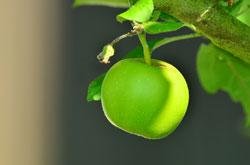
- Apple Cider Vinegar: Does apple cider vinegar really lower cholesterol? Studies suggest it contains an antioxidant that helps prevent bad cholesterol from oxidizing, which can lead to clogged arteries (1). However, more studies are needed to confirm this benefit in humans.
- Fish: Calling all fish lovers! Fish rich in omega-3 fatty acids are fantastic for your heart. Omega-3s not only lower triglycerides but also manage blood pressure and reduce plaque formation in arteries. They also give your good HDL cholesterol a boost. Salmon, mackerel, herring, sardines, tuna, and trout are all superstars when it comes to omega-3s (3).
- Turmeric: The golden spice, turmeric, might be a cholesterol warrior. Curcumin, a compound in turmeric, is believed to lower bad LDL cholesterol and prevent its oxidation. Some studies suggest it can also reduce cholesterol production in the liver and its absorption in the gut, while hindering oxidation in the arteries. This triple threat approach makes turmeric a powerful ally for heart health. Include turmeric in your cooking or enjoy it in a warm drink.
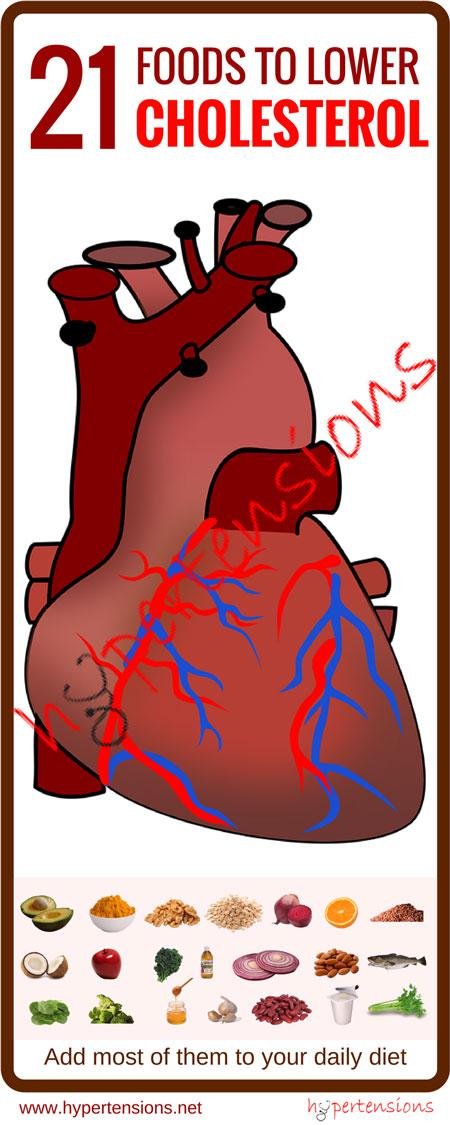
Best Breakfast Foods to Lower Cholesterol
- Broccoli: Broccoli is another heart hero. It's loaded with fiber and special nutrients called indole 3 carbinol (I-3C) and sulforaphane, which work together to lower cholesterol and prevent plaque buildup in arteries.
- Brown Rice: Ditch the white rice and choose brown instead! Brown rice is a whole grain that can help lower cholesterolcan help lower cholesterol. It contains an oil called rice bran oil, which tackles bad LDL cholesterol. Brown rice is also better for your overall cardiovascular health, especially for overweight women (2).
- Oatmeal: Oatmeal is a heart-healthy breakfast champion. The soluble fiber in oatmeal helps reduce bad LDL cholesterol and improve your overall cholesterol ratio. Studies have even shown that an oatmeal diet can be as effective as cholesterol-lowering drugs (5)! So, ditch the sugary cereals and start your day with a bowl of delicious and nutritious oatmeal. Add some fruit and nuts for extra flavor and a boost of nutrients.
- Yogurt: Yogurt is a good source of protein and calcium, but it also contains saturated fat, which isn't great for cholesterol. So, what makes yogurt a cholesterol-lowering food? The answer lies in the live and active cultures (probiotics) found in certain yogurts. These probiotics work their magic in the liver to help reduce cholesterol. Choose low-fat yogurt with live cultures for the most benefit. Enjoying a daily 200-gram serving can not only lower your cholesterol but also improve your digestion and overall health.
- Orange Juice: Squeeze in some heart health with orange juice! Studies suggest that daily consumption of orange juice can increase good HDL cholesterol by 21% and improve your cholesterol ratio. This is great news for reducing your risk of heart disease.
More Delicious Options for Cholesterol Control
- Flax Seeds: Flaxseeds are another source of heart-healthy omega-3s, specifically alpha-linolenic acid (ALA). These mighty seeds can lower your bad LDL cholesterol and raise your good HDL cholesterol. The best way to enjoy them? Grind them fresh and sprinkle them on salads, oatmeal, or baked goods.
- Honey: Honey is a natural sweetener packed with antioxidants that fight harmful free radicals. Studies on honey's cholesterol-lowering effects are conflicting, with some showing little to no improvement. However, some research suggests that honey water might increase antioxidant levels in the blood, which could help prevent cholesterol oxidation and artery clogging. So, enjoy a warm drink with a little honey each day
- Nuts: Nuts are a heart-healthy snack. Choose unsalted and unsweetened varieties for the best benefits. They're packed with protein, fiber, and healthy monounsaturated fats. Walnuts top the list of best nuts to eat for lowering Cholesterol. They are particularly rich in omega-3s, which can lower triglycerides and other bad cholesterol while raising good cholesterol. Almonds are another great option, with studies showing they can reduce bad LDL cholesterol. Enjoy a handful of nuts each day for a tasty and nutritious cholesterol-fighting snack.
Cholesterol Lowering Meal Plan for Vegetarians
While this article focuses on various foods, remember you can create a well-rounded vegetarian meal plan to lower cholesterol. Include plenty of fruits, vegetables, legumes, whole grains, and nuts and seeds.
- Coconut Oil: Coconut oil has gotten a bad rap, but it's not all bad news. While it does raise cholesterol, it increases the good HDL kind. This can actually improve your overall cholesterol ratio, which is a key indicator of heart health. So, don't ditch the coconut oil completely, but enjoy it in moderation.
- Beans: Beans are a triple threat – they're full of protein, fiber, and essential minerals. This powerhouse combo can lower your cholesterol by up to 10% within just six weeks! The soluble fiber in beans traps cholesterol and keeps it from being absorbed by your body.
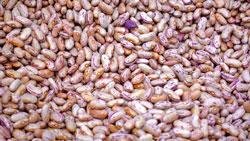
- Celery: This crunchy veggie is low in calories and high in fiber, making it a perfect addition to a low-cholesterol diet. Studies have shown that celery can not only lower cholesterol but also reduce high blood pressure. While potassium in celery might help with blood pressure, the link to cholesterol reduction isn't entirely clear. Regardless, celery offers a bundle of health benefits.

- Avocados: Avocados are like creamy little superheroes for your heart. They're packed with healthy monounsaturated fats that can improve your cholesterol profile, even if your levels are already normal. They might also help with diabetes and weight management – all good things!
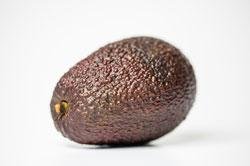
- Beetroot: This vibrant root veggie is a heart-healthy friend. It contains a compound called betacyanin, which might help lower both cholesterol and triglycerides. Beetroot can also improve your bowel and liver function – a win-win! Drinking beetroot juice might even reduce your cholesterol by up to 10 points.
- Garlic: Garlic has been a heart-healthy hero for ages. It contains a compound called allicin, which studies have shown can reduce bad cholesterol in labs. While human studies have yielded mixed results, garlic might also help thin the blood and lower blood pressure (4). So, include garlic in your diet – it can't hurt!
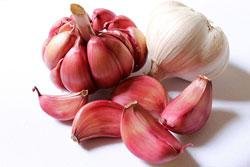
- Onions: Onions aren't just for adding flavor to your food. They contain flavonoid antioxidants called quercetin, which can help lower bad LDL cholesterol while keeping your good HDL cholesterol levels steady. This improves your overall cholesterol ratio and reduces the risk of heart disease. Red onions are especially effective, and it's best to eat them raw for the most benefit.
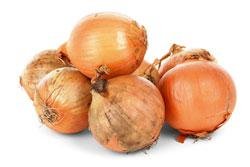
- Mustard Greens: Leafy green vegetables like mustard greens are your friends! They're loaded with antioxidants, fiber, and beneficial plant compounds. They can help detoxify your liver and lower cholesterol, while also providing a good dose of vitamin K for strong bones.
- Spinach: Popeye was onto something with spinach! This leafy green veggie is loaded with lutein, which helps manage cholesterol levels. Lutein prevents bad LDL cholesterol from oxidizing, which can lead to artery blockage. So, eat a cup of spinach daily to keep your heart happy and healthy. Spinach is also good for your eyes and may help with blood pressure and diabetes control.
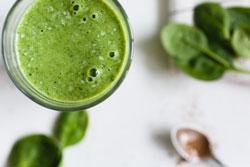
Cholesterol Reducing Smoothie Recipes
Looking for delicious and nutritious ways to incorporate cholesterol-lowering foods? Smoothies are a fantastic option! Here are some ideas:
- Green Power Smoothie: Blend together spinach, banana, avocado, flax seeds, and almond milk for a green powerhouse packed with fiber, healthy fats, and antioxidants.
- Berry Delight Smoothie: Combine berries (strawberries, blueberries, raspberries), yogurt with live and active cultures, and a sprinkle of chia seeds for a tasty and heart-healthy treat.
- Tropical Paradise Smoothie: This smoothie blends mango, pineapple, coconut milk, and a scoop of protein powder for a delicious and cholesterol-balancing option.
Bottom Line
Remember, these are just some of the delicious ways to fight high cholesterol naturally. By incorporating these heart-healthy foods into your diet, maintaining a healthy lifestyle, and consulting with your doctor, you can take control of your cholesterol and keep your heart happy and strong!
Triglycerides are a type of fat stored in your body for energy. While they play a vital role in keeping you energized throughout the day, chronically elevated triglyceride levels can significantly increase your risk of developing heart disease.
Ever feel confused about cholesterol? You're not alone! Let's clear things up. It's not just about a single number on a blood test – it's the balance between good (HDL) and bad (LDL) cholesterol that matters most.
The good news? You can achieve this naturally, ditching the potential side effects of medications! Here's how to take charge of your heart health and lower bad LDL cholesterol naturally through simple lifestyle changes:
Natural Strategies to Supercharge Your Good HDL and Minimize Bad LDL
While some recent studies are exploring the complexities of cholesterol's role in heart disease (1), doctors still emphasize keeping LDL in check for optimal heart health (2). So, keep your LDL in check and you have many natural choices.
Diet Makeover: Revamp Your Plate for Heart Health
- Cut Saturated Fat:Ditch fatty cuts of meat like marbled steaks and ground beef. Choose lean protein sources like skinless chicken, fish, beans, and lentils. Opt for low-fat or fat-free dairy options like skim milk or Greek yogurt.
- Embrace Omega-3 Powerhouses:Salmon, mackerel, herring, and sardines are heart-healthy fat superstars! Include them in your diet at least twice a week. Flaxseeds, walnuts, and chia seeds are also excellent plant-based sources of Omega-3s.
- OutsmartSneaky Trans Fats:Avoid processed foods like fried snacks, packaged pastries, and commercially baked goods. These are often loaded with unhealthy trans fats. Check food labels carefully – steer clear of anything with "hydrogenated oils."
Weight Management: Shedding Pounds for a Healthier You

Being overweight or obese raises bad LDL cholesterol and increases your risk of heart disease. Aim for a healthy weight loss of 1-2 pounds per week through gradual calorie reduction. Focus on portion control and choose nutrient-rich whole foods over processed options.
So, how much weight loss is needed to lower cholesterol? Even modest weight loss can make a significant difference. Studies suggest that losing just 5-10% of your body weight can positively impact your cholesterol levels.
Fiber Up! Increase Soluble Fiber for a Cholesterol-Lowering Advantage
Soluble fiber in fruits (apples, bananas, berries), vegetables (Brussels sprouts, broccoli, sweet potatoes), and oatmeal traps cholesterol in your digestive system, preventing its absorption. Bonus: fiber keeps you feeling fuller for longer, which can aid in weight management!
Exercise for a Double Win: Boost Good HDL and Lower Bad LDL
Regular physical activity is a cornerstone of heart health. Aim for at least 30 minutes of moderate-intensity exercise most days of the week. Brisk walking, swimming, cycling, dancing, or even gardening are all excellent choices. Choose activities you enjoy for long-term consistency.
Can exercise lower cholesterol quickly? While exercise won't drastically lower your cholesterol overnight, it can contribute to positive changes over time. Combining regular exercise with a healthy diet is a powerful one-two punch for improving your cholesterol profile.
Best Exercises for Heart Health:
- Brisk walking
- Swimming
- Cycling
- Dancing
- Strength training (2-3 times per week)
Stress Less, Live More! Manage Stress to Keep Your Heart Healthy
Chronic stress can worsen cholesterol levels and increase your risk of heart disease. Find healthy ways to unwind and de-stress. Yoga, meditation, spending time in nature, or simply taking deep breaths can all be effective stress management techniques. Laughter is great medicine too – watch a funny movie, spend time with loved ones, or do activities that bring you joy!
Kick the Butt: Stop Smoking for a Clear Advantage
Smoking lowers good HDL and raises bad LDL cholesterol. It's a double whammy for your heart health. Quitting smoking is one of the best things you can do for your overall health and well-being. There are many resources available to help you quit smoking, including nicotine replacement therapy, counseling, and support groups.
Remember: Consistency is key! By incorporating these simple lifestyle changes into your daily routine, you can significantly improve your cholesterol profile within a month, naturally and safely! Take charge of your heart health today – your future self will thank you!
Natural Remedies, Recipes, and Additional Tips
While medication may be necessary in some cases, natural remedies can be a great way to support healthy cholesterol levels alongside a balanced diet and exercise routine.
Natural Cholesterol-Lowering Support
- Fiber Powerhouses:Incorporate soluble fiber-rich foods like psyllium husk and oat bran into your diet. These can be consumed as supplements or added to smoothies, yogurt, or baked goods.
- Plant Sterols and Stanols:These plant-derived compounds can help block cholesterol absorption in the intestines. Look for foods fortified with plant sterols or stanols, or consider taking them as supplements.
- Red Yeast Rice:This fermented rice product contains a natural compound called monacolin K, which may help lower LDL cholesterol. However, it's important to consult with your doctor before using red yeast rice due to potential side effects and interactions with medications.
Can apple cider vinegar lower cholesterol? While some preliminary research suggests apple cider vinegar may have some cholesterol-lowering properties, more robust studies are needed. It's generally safe for most people in moderation, but it can interact with certain medications and may cause digestive discomfort.
Does garlic help lower cholesterol? Similar to apple cider vinegar, research on garlic's cholesterol-lowering effects is ongoing. While including garlic in your diet is a heart-healthy practice, it shouldn't be solely relied upon for managing cholesterol levels. Studies suggest garlic may have a mild cholesterol-lowering effect. While not a magic bullet, incorporating garlic into your cooking can be a heart-healthy addition to your diet.
Healthy Recipes for Lowering Cholesterol
- Mediterranean Diet:This heart-healthy dietary pattern emphasizes fruits, vegetables, whole grains, legumes, and healthy fats like olive oil. Explore flavorful recipes featuring these ingredients to create delicious and cholesterol-friendly meals.
- Salmon with Roasted Brussels Sprouts:Salmon is a rich source of Omega-3s, while Brussels sprouts are loaded with fiber. This simple and delicious dish provides a powerful one-two punch for heart health.
- Lentil Soup with Whole-Wheat Bread:Lentils are a heart-healthy protein source packed with fiber. This comforting soup is a great way to incorporate cholesterol-lowering nutrients into your diet.
Cholesterol Test at Home
Home cholesterol tests can provide a general idea of your cholesterol levels. However, they are not a substitute for a doctor's diagnosis and may not be as accurate as a blood test at a healthcare facility.
Remember: It's crucial to consult with your doctor before starting any new supplements or making significant dietary changes, especially if you have underlying health conditions or take medications.
Conclusion
By taking charge of your lifestyle and incorporating these natural strategies, you can significantly improve your cholesterol profile and promote long-term heart health. Remember, consistency is key! With dedication and a focus on healthy habits, you can create a positive impact on your cardiovascular well-being.
Have you heard about the rise in bad cholesterol (LDL)? It's no surprise with all the yummy (but not-so-heart-healthy) food around these days. Don't worry, though! You can fight back and improve your heart health with some simple changes to your cholesterol lowering diet.







